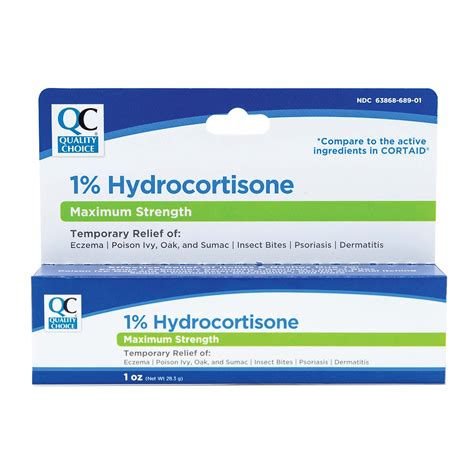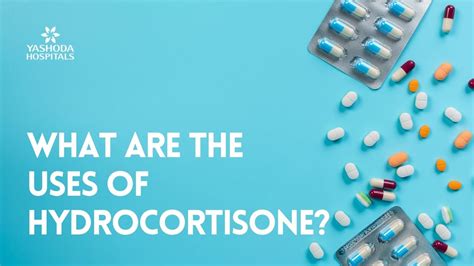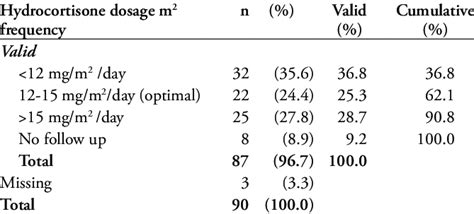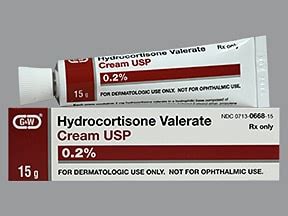Intro
Discover what hydrocortisone is, a topical steroid cream for skin issues like eczema, acne, and dermatitis, reducing inflammation and itching with anti-inflammatory properties.
Hydrocortisone is a type of steroid medication that is commonly used to treat a variety of health conditions, including skin allergies, itching, and inflammation. It is a synthetic version of the hormone cortisol, which is produced naturally by the adrenal gland. Hydrocortisone works by reducing inflammation and suppressing the immune system, which can help to alleviate symptoms such as redness, swelling, and itching.
Hydrocortisone is available in a range of formulations, including creams, ointments, lotions, and tablets. It is often used to treat conditions such as eczema, dermatitis, and psoriasis, as well as to relieve itching and inflammation caused by insect bites, minor cuts and scrapes, and skin irritations. Hydrocortisone can also be used to treat other conditions, such as asthma, arthritis, and certain types of cancer.
The use of hydrocortisone has become increasingly popular in recent years, due to its effectiveness in treating a range of health conditions. However, it is essential to use hydrocortisone under the guidance of a healthcare professional, as it can have side effects and interact with other medications. In this article, we will explore the benefits and risks of hydrocortisone, as well as its uses, dosage, and potential interactions.
Benefits of Hydrocortisone

Hydrocortisone has several benefits that make it a popular treatment option for a range of health conditions. Some of the key benefits of hydrocortisone include:
- Reduces inflammation: Hydrocortisone has potent anti-inflammatory properties, which can help to reduce swelling, redness, and pain.
- Relieves itching: Hydrocortisone can help to alleviate itching and scratching, which can be a significant symptom of skin conditions such as eczema and dermatitis.
- Suppresses the immune system: Hydrocortisone can help to suppress the immune system, which can help to reduce the severity of autoimmune diseases such as asthma and arthritis.
- Easy to use: Hydrocortisone is available in a range of formulations, including creams, ointments, and lotions, which can be easily applied to the affected area.
How Hydrocortisone Works
Hydrocortisone works by reducing inflammation and suppressing the immune system. It does this by binding to specific receptors in the body, which can help to reduce the production of inflammatory chemicals. Hydrocortisone can also help to reduce the activity of immune cells, such as T-cells and B-cells, which can contribute to inflammation and autoimmune diseases.Uses of Hydrocortisone

Hydrocortisone has a range of uses, including:
- Treating skin conditions: Hydrocortisone is commonly used to treat skin conditions such as eczema, dermatitis, and psoriasis.
- Relieving itching: Hydrocortisone can help to alleviate itching and scratching, which can be a significant symptom of skin conditions.
- Reducing inflammation: Hydrocortisone can help to reduce inflammation and swelling, which can be a symptom of a range of health conditions.
- Treating autoimmune diseases: Hydrocortisone can help to suppress the immune system, which can help to reduce the severity of autoimmune diseases such as asthma and arthritis.
Types of Hydrocortisone
There are several types of hydrocortisone, including:- Hydrocortisone cream: This is a topical formulation that is applied directly to the skin.
- Hydrocortisone ointment: This is a thicker, more greasy formulation that is applied directly to the skin.
- Hydrocortisone lotion: This is a liquid formulation that is applied directly to the skin.
- Hydrocortisone tablets: This is an oral formulation that is taken by mouth.
Dosage and Administration

The dosage and administration of hydrocortisone will depend on the specific condition being treated, as well as the individual's response to the medication. It is essential to follow the instructions provided by a healthcare professional, as taking too much hydrocortisone can lead to side effects.
- Topical formulations: Apply a thin layer of hydrocortisone cream, ointment, or lotion to the affected area, as directed by a healthcare professional.
- Oral formulations: Take hydrocortisone tablets as directed by a healthcare professional, with or without food.
Side Effects of Hydrocortisone
Hydrocortisone can have side effects, including:- Skin thinning: Long-term use of hydrocortisone can lead to skin thinning, which can increase the risk of bruising and tearing.
- Weight gain: Hydrocortisone can cause weight gain, particularly in the face, neck, and trunk.
- Mood changes: Hydrocortisone can cause mood changes, including anxiety, depression, and irritability.
- Sleep disturbances: Hydrocortisone can cause sleep disturbances, including insomnia and vivid dreams.
Interactions with Other Medications

Hydrocortisone can interact with other medications, including:
- Blood thinners: Hydrocortisone can increase the risk of bleeding when taken with blood thinners, such as warfarin.
- Diabetes medications: Hydrocortisone can increase blood sugar levels, which can affect the management of diabetes.
- Blood pressure medications: Hydrocortisone can increase blood pressure, which can affect the management of hypertension.
Precautions and Warnings
Hydrocortisone can have precautions and warnings, including:- Pregnancy and breastfeeding: Hydrocortisone should be used with caution in pregnant and breastfeeding women, as it can pass into the fetus or baby.
- Children: Hydrocortisone should be used with caution in children, as it can affect growth and development.
- Elderly: Hydrocortisone should be used with caution in elderly individuals, as it can increase the risk of osteoporosis and cataracts.
What is hydrocortisone used for?
+Hydrocortisone is used to treat a range of health conditions, including skin allergies, itching, and inflammation, as well as autoimmune diseases such as asthma and arthritis.
How does hydrocortisone work?
+Hydrocortisone works by reducing inflammation and suppressing the immune system, which can help to alleviate symptoms such as redness, swelling, and itching.
What are the side effects of hydrocortisone?
+Hydrocortisone can have side effects, including skin thinning, weight gain, mood changes, and sleep disturbances.
In conclusion, hydrocortisone is a versatile medication that can be used to treat a range of health conditions. While it can have side effects and interact with other medications, it can be an effective treatment option for individuals who suffer from skin allergies, itching, and inflammation, as well as autoimmune diseases. If you are considering using hydrocortisone, it is essential to consult with a healthcare professional to discuss the potential benefits and risks, as well as to determine the best course of treatment for your specific condition. We invite you to share your thoughts and experiences with hydrocortisone in the comments below, and to share this article with others who may benefit from this information.
